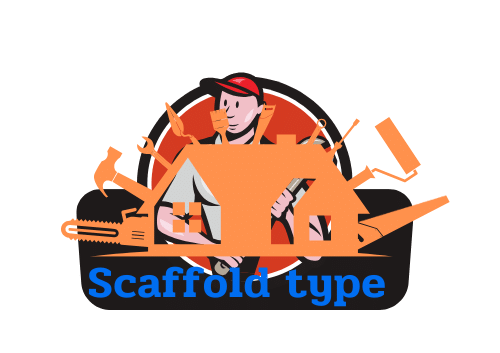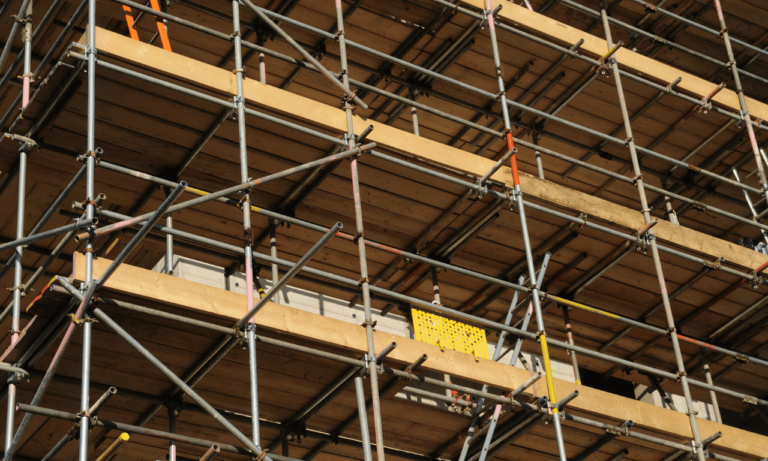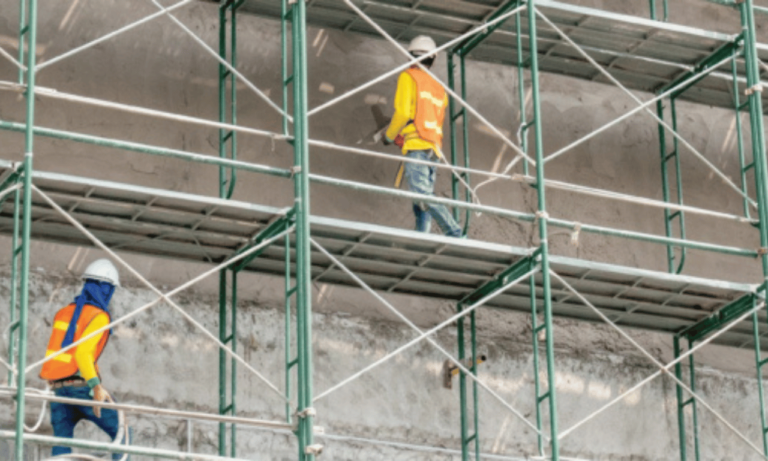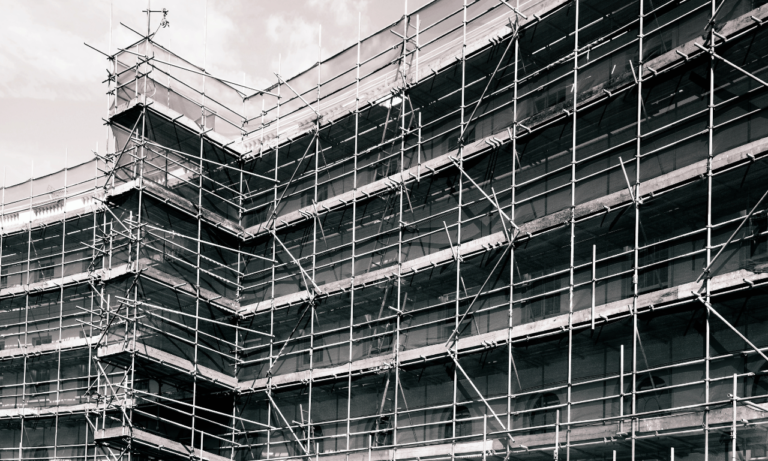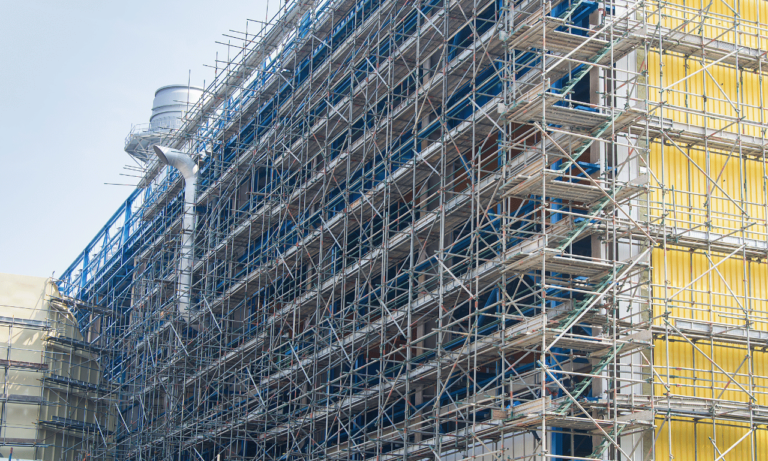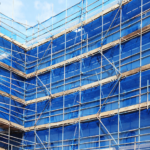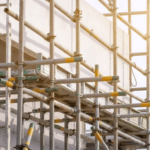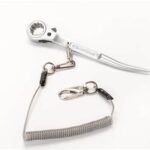Phone:
(+65)8319-0742
Outrigger scaffolding is a vital component in construction projects, providing safe access to elevated work areas. It is essential to understand the proper use and safety measures associated with outrigger scaffolding. Construction safety is paramount, and proper scaffold use is crucial in protecting workers on job sites. To ensure compliance with safety standards, the NC Department of Labor has published a comprehensive guide to safe scaffolding, covering guidelines for policy development, scaffold design, and training requirements. This guide emphasizes the importance of selecting the right scaffolding equipment for the job, conducting thorough inspections, and prioritizing safety.
Key Takeaways:
- Outrigger scaffolding ensures safe access to elevated work areas in construction projects.
- The NC Department of Labor provides a comprehensive guide to safe scaffolding.
- Selecting the right scaffolding equipment, conducting thorough inspections, and ensuring compliance with safety standards are crucial.
- Understanding the different types of outrigger scaffolding systems is necessary for efficient construction support.
- Safety considerations include regular inspections, proper training, stability, and adherence to safety guidelines.
Types of Outrigger Scaffolding Systems
Outrigger scaffolding systems come in different types, each designed for specific applications. Examples include baker scaffold and mobile scaffold, which are used for various elevated work tasks. Understanding the various options available is crucial for selecting the right system based on project requirements and safety considerations.
Suspended Scaffolds
Suspended scaffolds, also known as hanging scaffolds, are commonly utilized when traditional scaffolding is impractical or when access to certain areas, such as bridges or high-rise buildings, is necessary. The scaffold platform hangs from outrigger beams attached to a strong support structure, allowing workers to safely work at elevated heights while maintaining stability and mobility. Suspended scaffolds provide a flexible solution for various industrial and construction applications.
Cantilever Scaffolds (Outrigger Scaffolding)
Cantilever scaffolds, also referred to as outrigger scaffolding, are specifically designed to enable workers to access challenging locations that traditional scaffolding cannot reach. This type of scaffolding extends the scaffold platform beyond the support structure, providing a stable working platform for tasks such as building maintenance, window installation, or façade repairs. Outrigger beams, attached to the primary structure, offer stability and balance to ensure safe and efficient work.
Spur Scaffolds
Spur scaffolds utilize inclined load-bearing components for support and are commonly used in conjunction with propping systems. This type of scaffolding is often employed in construction projects requiring additional support for load-bearing walls or structures. The inclined load-bearing components provide stability and enable workers to perform tasks at varying heights with enhanced safety.
Choosing the right outrigger scaffolding system depends on the specific project requirements, accessibility needs, and safety considerations. It is essential to consult with industry professionals and adhere to safety guidelines to ensure the proper selection, installation, and use of the scaffolding system. Scaffold access and the use of scaffold planks are critical in maintaining worker safety, ensuring that scaffolds are erected and used under the supervision of qualified personnel.
| Outrigger Scaffolding Type | Main Features | Common Applications |
|---|---|---|
| Suspended Scaffolds | – Hangs from outrigger beams attached to a strong support structure. – Provides flexibility and mobility. – Suitable for high-rise buildings, bridges, and industrial settings. | – Construction of high-rise buildings – Bridge maintenance and repairs – Industrial maintenance tasks – Painting and window installation at heights |
| Cantilever Scaffolds (Outrigger Scaffolding) | РScaffold platform extends beyond the support structure. РOffers stability and strength with outrigger beams. РProvides access to challenging work areas. РBalances weight distribution to ensure safety. | РBuilding maintenance and repairs РFa̤ade construction and repairs РWindow installation at heights РTasks requiring platforms positioned beyond the primary structure |
| Spur Scaffolds | – Utilizes inclined load-bearing components for support. – Enhances stability and safety. – Works in conjunction with propping systems. – Adjustable and adaptable to varying heights. | – Construction projects requiring load-bearing support – Working on load-bearing walls – Structural repairs and renovations |
Safety Considerations for Outrigger Scaffolding

Ensuring scaffold safety is of utmost importance when working with outrigger scaffolding. By implementing proper safety measures, construction professionals can create a secure work environment. Here are some essential safety considerations to keep in mind:
- Regular inspections: Before using the scaffold, it is crucial to conduct regular inspections to identify any potential hazards or defects. This includes checking for loose or damaged components, ensuring secure connections, and examining the stability of the scaffold.
- Proper training: Workers using outrigger scaffolding should receive comprehensive training on scaffold assembly, usage, and safety protocols. This training should cover topics such as fall protection, scaffold stability, and safe work practices.
- Compliance with weight capacity limits: It is vital to adhere to the weight capacity limits specified by the manufacturer. Overloading the scaffold can compromise its stability and pose a significant safety risk.
- Stability: Scaffolds should be set up on level surfaces to maintain stability. Additionally, the scaffold should be properly braced and secured to prevent tipping over. Anchoring the scaffold to the structure or ground, as recommended by the manufacturer, can enhance stability.
- Adherence to safety guidelines: Employing safety measures such as using guardrails, toeboards, and personal fall protection systems can help prevent accidents. Providing safe access and egress routes, clear of obstructions, is also crucial for worker safety.
Renting outrigger scaffolding from reputable suppliers is an excellent way to ensure the equipment meets safety standards. Reputable rental companies conduct regular maintenance, inspections, and updates to their scaffolding inventory, ensuring the safety of their customers.
Benefits of Aluminum Outrigger Scaffolding
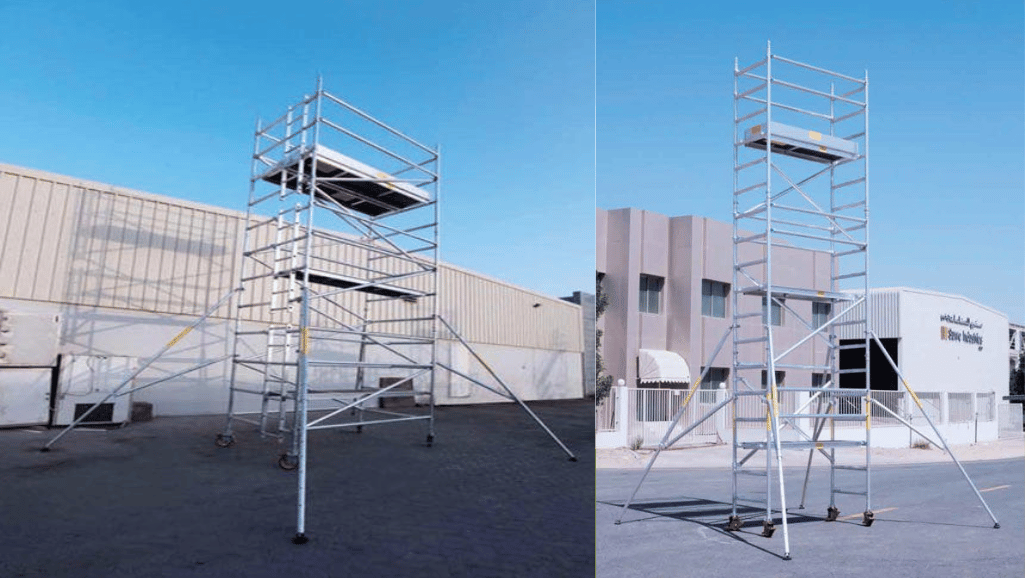
When it comes to construction projects, aluminum outrigger scaffolding offers numerous advantages. Aluminum scaffolding is known for its lightweight yet sturdy construction, providing the perfect combination of maneuverability and strength for construction support.
One of the key benefits of aluminum scaffolding is its lightweight nature, making it easier to handle and transport compared to other materials. This weight advantage translates into increased efficiency during setup and dismantling, saving valuable time and resources.
Construction support is a top priority, and aluminum scaffolding surpasses expectations. Despite its lightweight design, aluminum scaffolding remains incredibly strong and durable, providing robust support for workers and equipment at elevated heights. This durability ensures long-lasting performance even in harsh and demanding environments, making it a reliable choice for construction projects of all sizes.
Another significant advantage of aluminum scaffolding systems is their adjustable and versatile nature. The ability to customize the scaffold to various heights and work requirements allows for enhanced flexibility and adaptability on the job site. This versatility ensures that workers can efficiently complete their tasks while maintaining optimal safety levels.
Furthermore, aluminum scaffolding is resistant to corrosion. This feature helps extend the scaffold’s lifespan and reduces the need for frequent maintenance or replacement. It is particularly beneficial in coastal or high humidity areas where traditional steel scaffolding may be prone to rust and deterioration.
In summary, aluminum outrigger scaffolding offers significant benefits for construction projects. Its lightweight and durable design ensure easy handling, transport, and reliable construction support. The versatility and adjustability of aluminum scaffolding systems allow for efficient customization to meet various height and work requirements. With these advantages, it’s no wonder that aluminum scaffolding has become a preferred choice for construction professionals.
Renting vs. Buying Outrigger Scaffolding
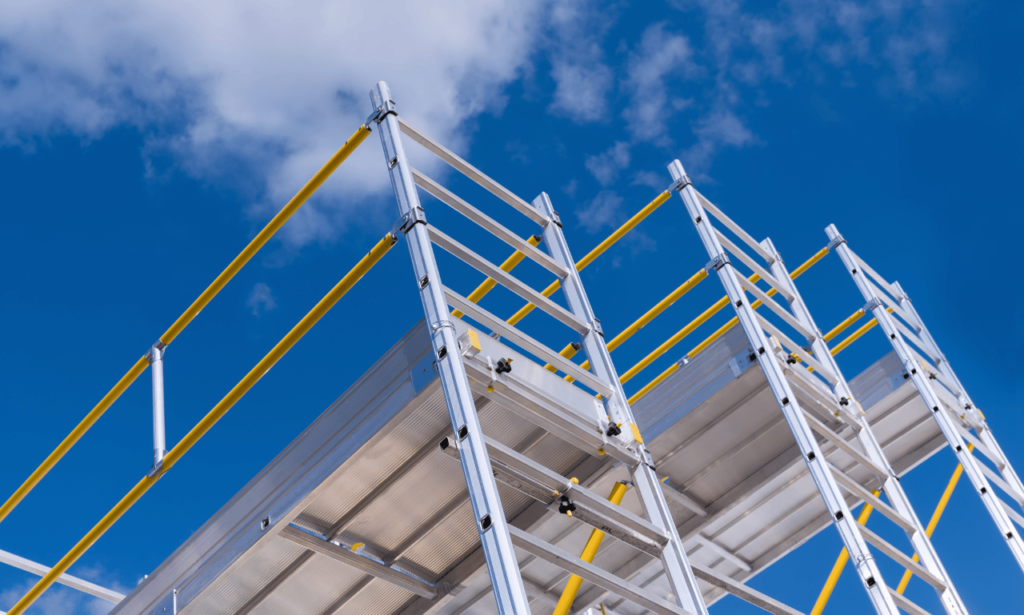
When considering outrigger scaffolding, construction companies have the option to rent or buy the equipment. Renting scaffolding can be a cost-effective choice for short-term projects or when specific scaffold configurations are needed. Renting allows for flexibility in using the latest scaffold systems without the upfront investment. However, purchasing scaffolding may be more economical for long-term or frequent use. It provides the convenience of having the equipment readily available for ongoing projects, eliminating the need for rental coordination.
Here are some key factors to consider when deciding between renting and buying outrigger scaffolding:
- Project Duration: If your construction project has a short duration, renting scaffolding can save costs compared to purchasing the equipment outright.
- Cost Analysis: Evaluate the rental costs versus the purchase price of scaffolding to determine the most cost-effective option based on your specific project needs.
- Flexibility: Renting scaffolding allows for flexibility in adjusting the scaffold system based on the project requirements. Different configurations and sizes can be easily obtained without the need for long-term ownership.
- Customization: If your project requires specific scaffold configurations or specialized components, renting can provide access to a wider range of options without the commitment of buying.
- Logistics: Consider the logistics of renting scaffolding, including transportation and coordination of delivery and pick-up. If your project involves frequent scaffold relocations, owning the equipment may simplify the logistics.
Ultimately, the decision to rent or buy outrigger scaffolding depends on the unique needs of your construction projects. Assessing the project duration, cost analysis, flexibility, customization requirements, and logistics can help determine the most suitable option. Collaborating with a reputable scaffolding supplier can provide valuable insights and assistance in making an informed decision.
| Renting Outrigger Scaffolding | Buying Outrigger Scaffolding |
|---|---|
| Cost-effective for short-term projects | Economical for long-term or frequent use |
| Flexible access to the latest scaffold systems | Readily available for ongoing projects |
| No upfront investment | No rental coordination required |
| Easy customization and adjustment | Simplified logistics for frequent relocations |
| Logistics coordination for delivery and pick-up | Possible cost savings over time |
Conclusion
Construction scaffolding plays a vital role in ensuring safe access to elevated work areas. Whether it’s outrigger scaffolding or other types, understanding the different systems and safety considerations is crucial for a successful construction project.
By selecting the right scaffold system, whether through renting or buying, construction professionals can ensure compliance with safety guidelines and maintain a safe and efficient work environment. Prioritizing scaffold safety, such as regular inspections and proper use and maintenance, is essential in minimizing the risk of accidents and providing reliable construction support.
Whether it’s for a short-term project or long-term use, construction scaffolding systems are indispensable tools that provide stability and accessibility to workers. By embracing the importance of construction scaffolding and employing the necessary safety measures, construction professionals can enhance productivity, reduce accidents, and facilitate the seamless execution of their projects.
FAQ
What is outrigger scaffolding?
Outrigger scaffolding is a crucial component in construction projects, providing safe access to elevated work areas.
Why is outrigger scaffolding important in construction?
Outrigger scaffolding is important in construction as it allows workers to access challenging locations by extending the scaffold platform beyond the support structure.
What are the types of outrigger scaffolding systems?
The types of outrigger scaffolding systems include suspended scaffolds, cantilever scaffolds (outrigger scaffolding), and spur scaffolds.
What are some safety considerations for outrigger scaffolding?
Safety considerations for outrigger scaffolding include regular inspections, proper training, compliance with weight capacity limits, stability, and adherence to safety guidelines.
What are the benefits of using aluminum outrigger scaffolding?
Aluminum outrigger scaffolding offers advantages such as being lightweight yet strong, resistant to corrosion, adjustable, and versatile.
Should I rent or buy outrigger scaffolding?
Whether to rent or buy outrigger scaffolding depends on factors such as project duration, specific scaffold configurations, and long-term or frequent use.
How can I maintain a safe and efficient work environment with outrigger scaffolding?
To maintain a safe and efficient work environment with outrigger scaffolding, prioritize scaffold safety, select the right scaffold system, ensure compliance with safety guidelines, and employ proper use and maintenance protocols.
